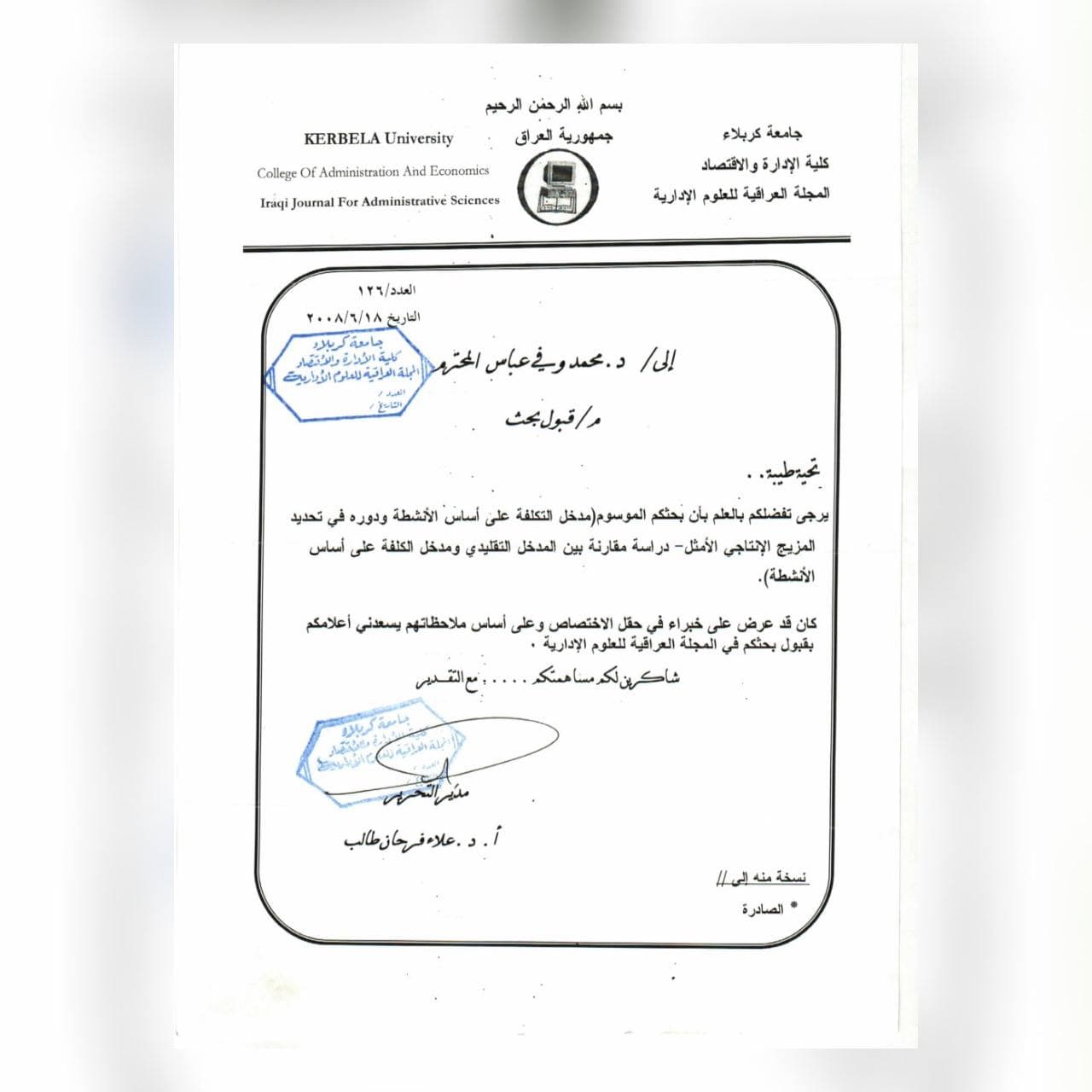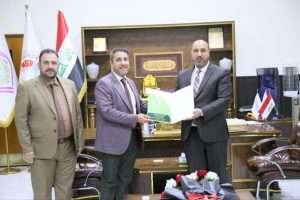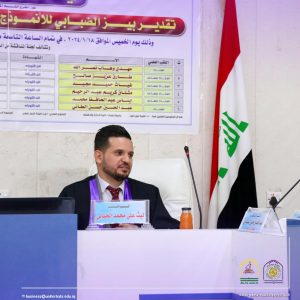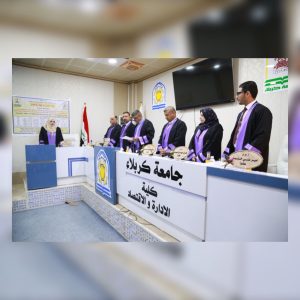A lecturer from Collage of Administration and Economics /Kerbala University has published a scientific study for “The activity-based costing approach and its role in determining the optimal production mix A comparative study between the traditional approach and ABC approach”
Iraqi Journal For Administrative Sciences, Volume (6), Issue (23), March 2008
Dr. mohammed wafi Abd Eawn
Abstract:
The problem of this research comes up with the result that the depending on traditional approach based on the volume in allocating overhead costs to produced units will lead to unreal charging of overhead costs to produced units, then distortion of cost per unit of each product, and that will lead the management to choosing unprofitable product-mix, and will focus on the efforts improvement in wrong operations, and that is trace substantial reduction in company profitability. This research aims to showing role of an activity-based costing approach in real determining of optimal product-mix and its comparing with traditional approach. This research depends on the following hypothesis:-“Taking an activity-based costing approach in preparing costs information will ensure relevant information that will assist the management in the real determining of optimal product-mix”
The research is divided into paragraphs deals with the research methodology, explaining traditional approach of cost, then explaining an activity-based costing approach from through concept of an activity-based costing and its advantages, steps of implementing an activity-based costing approach, then an applicative part which displaying describing problem, then the problem formulation with linear programming style under traditional approach, then extracting the optimal solution of problem and its explanation, then the problem formulation with linear programming style under an activity-based costing approach, then extracting the optimal solution of problem and its explanation, after that results comparison under an activity-based costing and traditional approaches, and the important conclusions that revealed by the study and giving the suggested recommendations.































































